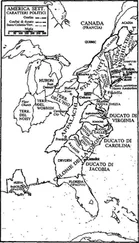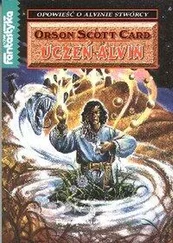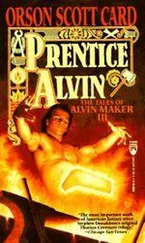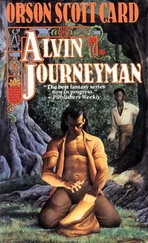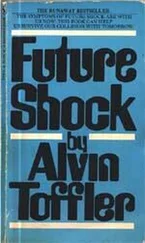ARTICLE IV
If I become a prisoner of war, I will keep faith with my fellow prisoners. I will give no information or take part in any action which might be harmful to my comrades. If I am senior, I will take command. If not, I will obey the lawful orders of those appointed over me and will back them up in every way.
ARTICLE V
When questioned, should I become a prisoner of war, I am bound to give only name, rank, service number, and date of birth. I will evade answering further questions to the utmost of my ability. I will make no oral or written statements disloyal to my country and its allies or harmful to their cause.
ARTICLE VI
I will never forget that I am an American fighting man, responsible for my actions, and dedicated to the principles which made my country free. I will trust in my God and in the United States of America.
Shu had every intention of adhering to the Code. Since he never expected to be taken prisoner, however, he had to work to recall those specific points and phrases that provided the standard by which U.S. POWs could always measure their actions and others could in turn hold them accountable.
The Code, like the Geneva Convention, established the Big Four—name, rank, service number, date of birth—as the only information properly obtainable from a prisoner of war. However, since the North Vietnamese knew that Shu had not surrendered freely and had no interest in cooperating, they saw little reason to extend Geneva Convention protection to an active combatant in an undeclared war. As it dawned on Shu that North Vietnam would make propaganda coerced from POWs a key component of its war effort, he would come to believe he had the right—the duty —to continue fighting this war tooth and nail, from cells, interrogation rooms, or wherever the enemy might confine him.
At present, Shu’s fighting was confined to Rooms Eighteen and Nineteen. After Owl’s initial failed attempts to get additional information, he switched to lecturing Shu on the history of Vietnam. He explained the long and unhappy colonial legacy left by the French and Japanese, lamenting his people’s struggle for rights and basic security. As recently as 1945, when it celebrated its newly won freedom from imperial Japan, Vietnam had looked to America as an ally. Now, as Owl saw it, the United States seemed bent on becoming his country’s new master. In fact, when Vietnam marked its liberation from Japan, Hồ Chí Minh, the leader of the Việtminh—the League for the Independence of Vietnam—had gratefully acknowledged assistance from America’s Office of Strategic Services (OSS), the World War II precursor to the CIA. As Hồ Chí Minh himself had worked in Boston and New York during 1911, he had great hope for an alliance with the United States. President Franklin Roosevelt’s statements of support for former colonies like Vietnam further encouraged Hồ Chí Minh and other Vietnamese leaders. Then France set about reestablishing control over its former colony. The brief peace ended, and the First Indochina War began. Roosevelt’s successor, Harry Truman, needed France to counterbalance the Soviet threat in Europe, and he believed the French military offered the only roadblock to Communist domination in Southeast Asia. Thus, Truman committed himself to the French cause, even as his advisers expressed doubts about anyone’s ability to suppress Vietnam’s growing nationalism.
The Eisenhower administration held the course, believing that the Việtminh did the bidding of America’s Cold War adversaries in Moscow and Beijing. By the end of 1954, America had spent more on France’s venture in Indochina than it had on France’s portion of the postwar Marshall Plan; the United States bore 80 percent of the costs of the Indochina War. One U.S. diplomat quipped, “We are the last French colonialists in Indochina.”
In Room Eighteen, Owl extolled Việtminh general Võ Nguyên Giáp, who had secured independence with a victory over French troops in the northwestern valley of Điện Biên Phủ. The resulting Geneva Accords of 1954 declared a cease-fire and divided Vietnam—temporarily—into two halves. An internationally supervised election scheduled for 1956 would unify the country under a single government. By then, however, Owl explained that neither the regime in Saigon nor its French or American patrons had any interest in staging national elections. All parties knew popular ballots would hand power to the Communist Việtminh. Thus, Vietnam remained split, and North and South Vietnam had consequently come into being as two distinct entities.
During the lectures, Shu sat silently on his concrete block, amazed that Owl and others spent day after day delivering three-hour history lessons from the desk. “They must have cast-iron bottoms,” Shu thought to himself. “They must have.”
As his fruitless efforts to reeducate Bob Shumaker continued, Owl explained that under North Vietnam’s direction, South Vietnamese factions—Communist and not—that opposed the American-backed regime of Ngô Đình Diệm founded the National Liberation Front (NLF), a Communist-led political organization. They called their military wing the People’s Liberation Armed Forces (PLAF); Diệm had dubbed the PLAF the “Việtcộng,” a truncated and pejorative form of the term “Vietnamese Communists.” Owl praised the resistance and its opposition to what he viewed as a puppet regime in Saigon. He told Shu the NLF would triumph, aided by North Vietnam, which was pumping men and materials southward along a jungle transportation network that the United States nicknamed the “Hồ Chí Minh Trail” after North Vietnam’s head of state and chairman of its Vietnamese Communist Party. With that lifeline, the NLF had gained significant control of more than 40 percent of South Vietnam, despite heavy U.S. aid and thousands of advisers. Hanoi hoped the insurgency’s success would overwhelm the southern regime and precipitate a U.S. exit by turning American public opinion against the war.
Instead of exiting, however, President Johnson reaffirmed his country’s involvement in Vietnam. For nearly two decades, the United States had staked part of its Cold War credibility on this fight, and he would not abandon the cause now. In a speech that spring of 1965, Johnson said, “To withdraw from one battlefield means only to prepare for the next. We must say in Southeast Asia—as we did in Europe—in the words of the Bible: ‘Hitherto shalt thou come, but no further.’” He concluded, “We will not be defeated.” Yet secretly Johnson had long harbored serious reservations. “It looks like to me that we’re getting into another Korea,” he confided to an aide the previous year. “I don’t think it’s worth fighting for and I don’t think we can get out. And it’s just the biggest damn mess that I ever saw.” Despite those worries, Johnson forged ahead and decided to send combat troops into South Vietnam.
On March 9, Owl informed Shu that 3,500 U.S. Marines had landed at Đà Nẵng the day before. “We’re finally going to win this war,” Shu thought. “I’ll be home by Christmas.” Now more optimistic, Shu feigned interest in the lessons but never trusted his interrogator. Besides, an enemy gulag seemed the worst of all places to begin questioning his government.
As March progressed, Owl returned to his interrogation. Shu’s training had taught him not to answer anything beyond the Big Four, but Owl’s questions came unrelentingly. Shu gradually began responding but deftly avoided providing any substantive answers, instead adopting a facade that he hoped would convince his enemy that they’d captured the most dimwitted aviator in the U.S. Navy. He told them his responsibility aboard ship extended only to tending pool tables. When they asked him about the most vulnerable spot on an F-8 Crusader, Shu pointed to a spot between his eyes; a bullet would kill the pilot. He figured that wouldn’t reveal anything new.
Читать дальше

